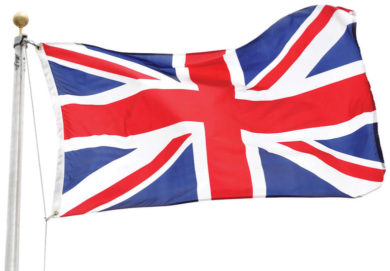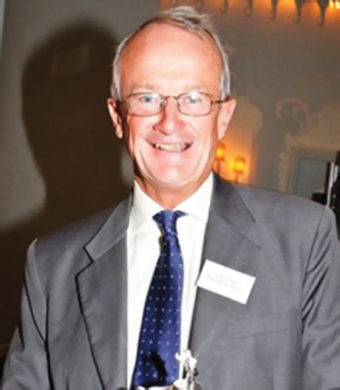
The best of British
At the end of April, the Independent Schools Council’s Annual Census revealed that private schools now educate more international students abroad than they do in Britain. The number of pupils attending ‘satellite’ campuses set up by leading Independent Schools has, for the first time, outstripped the number of overseas students taught in the UK. In 2017, British private schools operate 59 campuses abroad, educating 31,773 pupils an increase from 46 campuses last year with 27,619 pupils. This year there were 27,381 pupils in ISC schools whose parents were from overseas. So why is it that British schools, both in the UK and abroad, have proved to be so popular with overseas pupils and their parents?

For over 100 years, overseas pupils have enjoyed the benefits of a world class education. First and foremost, UK Independent Schools are renowned for their academic record and exceptionally high quality of education bringing about outstanding examination results, based on a broad and balanced curriculum, accompanied by rigorous assessment. According to the Independent Schools Council over 50% of A Level entrant from ISC member schools get A or A* grades and 91% of those leaving ISC member schools go on to university. Outstanding academic results are very much down to three key factors: firstly, a very good student/ staff ratio. The average ratio in ISC member schools is one teacher for every 9.4 students. This means that every student can be well looked after, both academically and pastorally.
It means that the learning environment is totally focused on the needs of individual students, with small classes providing individual attention and support, and an environment where all students are challenged. Secondly, the schools invest in both their teaching staff and their facilities. Up to date facilities in art, drama, information and technology, music and sport are often state of the art and having access to world class facilities produces outstanding results. Finally, the schools will often have the traditions and ethos to address the needs of the students as individuals.
The specifics of these traditions will vary from school to school but there will be a number of common themes such as the aim to develop the ‘whole person’ through a holistic belief; by instilling a social responsibility brought about by the promotion of such values as respect, thoughtfulness, kindness, mindfulness and generosity, whilst at the same time striving to create a rounded learning environment by encouraging self-expression, creativity and individuality in its students. An extended school day, along with the provision of a wide range of extra-curricular activities, allow for individual interests and talents to be recognized and encouraged. This then in turn results in students fulfilling their unique potential while also building up each student’s independence and confidence.
The heads of the leading British schools both in the UK and abroad would agree that their single most important role is to appoint outstanding members of staff – teachers who have a deep subject knowledge, and a determination to extend it through their teaching, reading and writing; teachers who are effective communicators of their learning; teachers who themselves are good learners; teachers who bring a co curricular interest or talent to the school and finally teachers who have a well-developed pastoral responsibility. The best teachers are emotionally astute, intellectually curious and are great communicators.
The emphasis that is now placed on pastoral care and personal mentoring is perhaps the biggest difference between the schools of today and those of 30 years ago. UK Independent Schools were always academically successful, but today they pride themselves on being just as successful at assisting students with the social and emotional challenges that they face not only during their school careers but also in their adult lives.
There is growing evidence that some teenagers are in the grip of a mental health crisis: rates of depression and anxiety among teenagers have increased in the UK by 70% in 25 years, and with the absence of ‘traditional anchors’, students are more adrift than ever before. Schools are seeing the urgent need to respond, providing much needed emotional security and moral framework: ‘As educators, our chief mission must be to inspire students’ minds, help them to think imaginatively and entrepreneurially and give them the skills and character to thrive’ – Sir Anthony Seldon, Vice Chancellor of the University of Buckingham, and former Master of Wellington College.
This mission to think entrepreneurially has been picked up by an increasing number of schools. With business skills finding their way into broad based curriculum as industry leaders call for better quality work forces, the world of business has entered into both primary and secondary classrooms. By becoming involved in a plethora of entrepreneurial projects, students learn skills that they do not get the opportunity to gain elsewhere in the curriculum.
Students will develop their leadership, communication and teamwork aptitudes while at the same time they will grow as individuals who are confident, business minded and problem At Eton College, over a tenth of the pupils enter each year the Hoberman Prize for Entrepreneurship in Educational Technology. This award, set up by the entrepreneur and Old Etonian Brent Hoberman, challenges students to come up with product ideas, develop them and pitch them to investors. This same vision will be at the forefront of the Entrepreneurship Suite at the new Denla British School: this has been specifically designed to provide all students with a set of resources which will allow them to take part in real life business scenarios.
The 21st Century will present new challenges, new demands and as yet undreamed-of opportunities, and the young of today must be equipped to respond. Denla British School has chosen as its motto – ‘Semper ad maiora’ … ‘Always towards greater things’. That vision will be met by providing an education that will develop intrinsic values of awareness, curiosity, optimism and resilience among its students in the years to come, along with a curriculum that will continue to evolve, meeting the need to fully captivate each student, their creative minds, their emotions and their character. The hallmark of the UK Independent education system has been this ability to evolve, to meet new challenges as they appear, and explains why it has proved to be so popular with overseas families, and why we will continue to see more and more British private schools opening abroad in the future.

Hugh Cocke taught in UK Independent Schools throughout his teaching career, and was Headmaster for twenty-one years of two leading Preparatory Schools. During his final year at Brambletye in West Sussex, he won the prestigious ‘Tatler Award for Best Head of a Prep School 2011’. On retirement,he was invited by the Pandejpong family to be their Project Adviser for the Denla British School www.dbsbangkok.ac.th, which opens on 28th August 2017 across eighteen acres in the Nonthaburi rea of North West Bangkok.



